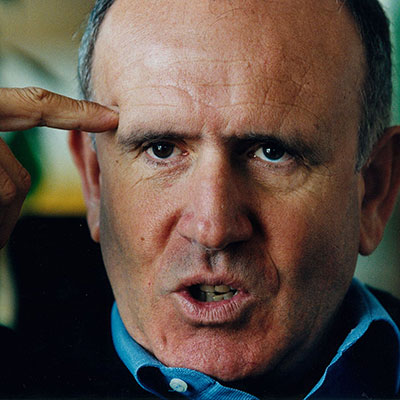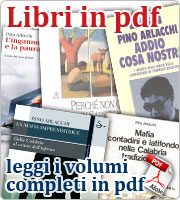Press Release, Bruxelles 9 Nov. 2010
Committee on Foreign Affairs
It is time to acknowledge that the military intervention in Afghanistan has failed and even led to a deterioration of security there, say MEPs in a controversial report blaming the coalition forces for "miscalculating their options". A new EU exit strategy needs to be shaped in full co-operation with the Afghans, and including the Taliban at the negotiating table, adds the report, approved in the Foreign Affairs Committee on Wednesday.
The EU strategy for Afghanistan needs a radical rethink: first, the EU and its allies need to acknowledge continuous deterioration in security and the socio-economic situation in the country, despite almost a decade of international involvement, and understand the need to get the Afghans fully involved in the exit strategy, says the report. The coalition is increasingly being increasingly perceived by the Afghan population as an occupying force, warn MEPs. A more balanced civilian and military approach is needed, including more concrete measures to eradicate poverty and discrimination against women.
MEPs propose to articulate the new EU strategy for Afghanistan around four key factors: improving the co-ordination of international aid, fine-tuning the EU role and involvement of Afghan players in the peace process, improving the quality of police training and fighting for the elimination of opium cultivation.
Peace process
In the controversial report adopted by the Foreign Affairs Committee, with many amendments being passed by a narrow majority, MEPs blame the current situation in the country on early miscalculations made by coalition forces. "The presence of the Taliban was underestimated, the ability of the Karzai government to provide governance overestimated, and as a result, little was attention paid to the task of rebuilding and developing the country", they say.
They recognise that the only possible solution for Afghanistan now is a political one, and that this should include negotiations - to eventually take place against the backdrop of a ceasefire - with the Taliban and other combatant groups and political players in the country who show their will to put an end to the civil war, and ensure respect for the rule of law and fundamental rights.
The EU's three red lines for engaging in a peace process must be a commitment by all parties involved to banish Al Qaeda, as well as any other terrorist group, to eliminate poppy cultivation and establish respect for fundamental human rights, states the report.
Police training
The text deplores the ineffectiveness of police training and recruitment standards, often done by a few US private security companies, the high illiteracy rate and number of drug abusers among the police forces. Knowing that the establishment of an operative national police is a prerequisite for the coalition forces to conclude their action in Afghanistan, MEPs call for improved international co-operation in this field, proposing a large-scale training programme to be launched jointly by the EU police mission in Afghanistan (EUPOL) and NATO/International Security Assistance Force, and incorporating the national police units.
(Ab)use of international aid
MEPs condemn the abuse of aid channelled through international organisations (e.g. banks, NGOs, international contractors, consultants), which too often results in the lost of "a significant proportion" of European and other international aid money, due to waste of resources, excessive intermediary and security costs, overbilling and corruption. In this context, they welcome the international decision to channel 50% of the international aid through the Afghan national budget in 2012.
To remedy the lack of co-ordination and transparency among international donors, MEPs call on the EU to set up a centralised database of all EU aid and to allocate more funds directly to concrete projects run in partnership with Afghan institutions.
The Committee also draws attention to the huge cost of the war (USD 300 billion in 2001-09, more than 20 times Afghanistan's GDP) and notes that the decision to place the US military supply chain in private hands "is fuelling extortion and corruption, as warlords, local mafia bosses and ultimately Taliban commanders end up taking a significant share of the USD 2.2-3 billion business of military logistics in Afghanistan". They also criticise the US for its "contradictory attempt to 'decapitate' the insurgency leadership using drones, US special forces and local militias, which are of questionable legal status, result in frequent civilian casualties and discredit the international intervention".
Opium cultivation
The fourth key priority for MEPs in the new EU strategy for Afghanistan should be to step up efforts to phase out opium cultivation by the four million Afghans who live from poppy crops, by promoting the use of alternative crops, such as saffron. MEPs call for a five-year national plan for the switch to alternative crops, to be implemented by a new agency to be created with its own budget and staff. Finally, the use of chemicals and herbicides to destroy the poppy fields should be banned by national law, says the report.
The text, drafted by Pino Arlacchi (ALDE, IT), was approved in committee with 60 votes in favour, 1 against and 5 abstentions. It is scheduled for a plenary vote in December.





 Non sono una persona complicata. La mia vita pubblica ruota intorno a due cose: il tentativo di capire ciò che mi circonda, da sociologo, e il tentativo di costruire un mondo più decente, da intellettuale e militante politico.
Non sono una persona complicata. La mia vita pubblica ruota intorno a due cose: il tentativo di capire ciò che mi circonda, da sociologo, e il tentativo di costruire un mondo più decente, da intellettuale e militante politico.




